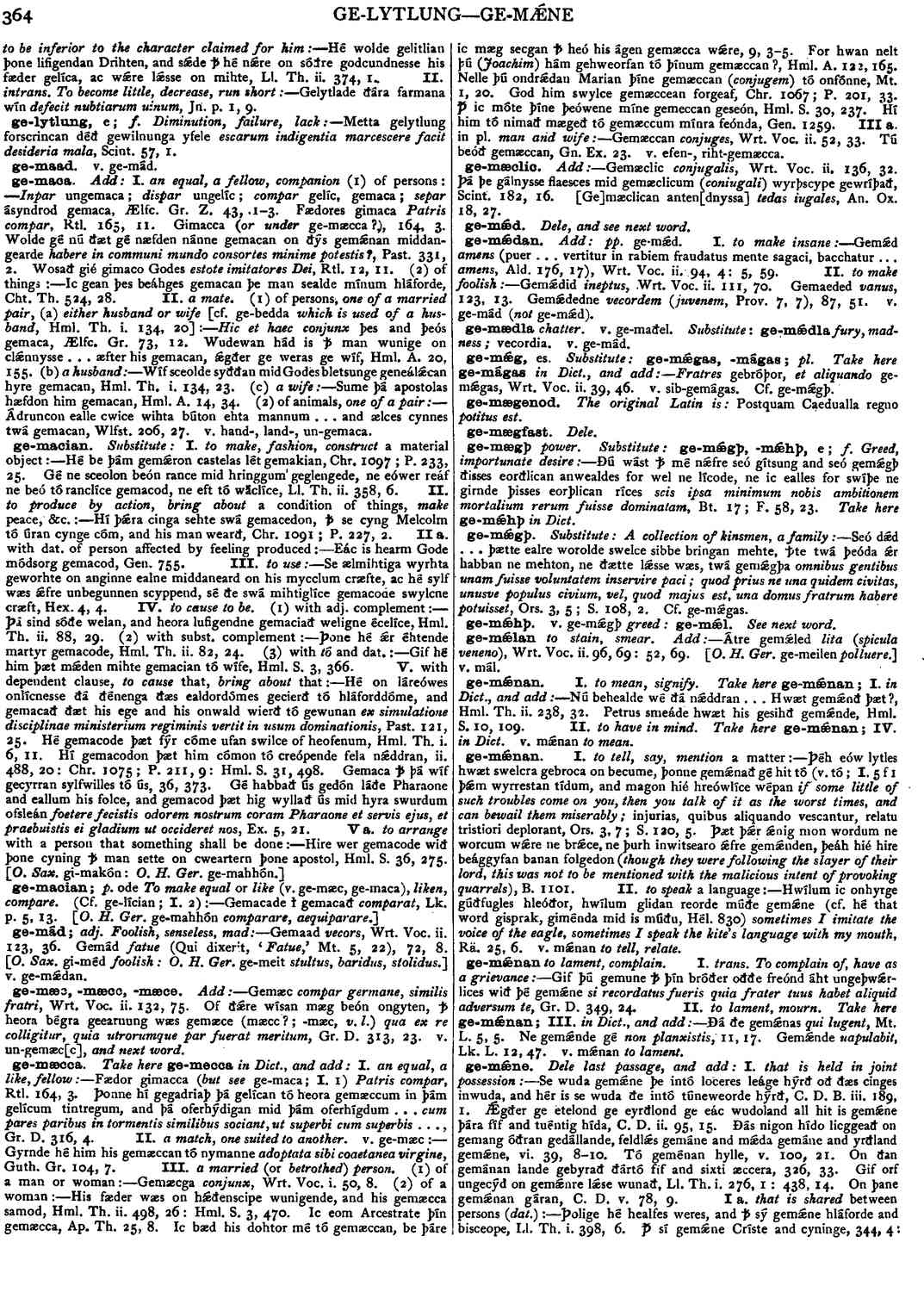ge-mǽnan
- verb [ weak ]
-
Þéh eów lytles hwæt swelcra gebroca on becume, þonne gemǽnað gé hit tó (v. tó; I. 5 f I þǽm wyrrestan tídum, and magon hié hreówlíce wépan
if some little of such troubles come on you, then you talk of it as the worst times, and can bewail them miserably;
injurias, quibus aliquando vescantur, relatu tristiori deplorant,- Ors. 3, 7; S. 120, 5.
-
Þæt þǽr ǽnig mon wordum ne worcum wǽre ne brǽce, ne þurb inwitsearo ǽfre gemǽnden, þeáh hié hire beággyfan banan folgedon
(though they were following the slayer of their lord, this was not to be mentioned with the malicious intent of provoking quarrels),
- B. 1101.
-
Hwílum ic onhyrge gúðfugles hleóðor, hwílum glidan reorde múðe gemǽne (cf. hé that word gisprak, giménda mid is múðu, Hel. 830)
sometimes I imitate the voice of the eagle, sometimes I speak the kite's language with my mouth,
- Ra. 25, 6.
Bosworth, Joseph. “ge-mǽnan.” In An Anglo-Saxon Dictionary Online, edited by Thomas Northcote Toller, Christ Sean, and Ondřej Tichy. Prague: Faculty of Arts, Charles University, 2014. https://bosworthtoller.com/48786.
Checked: 0